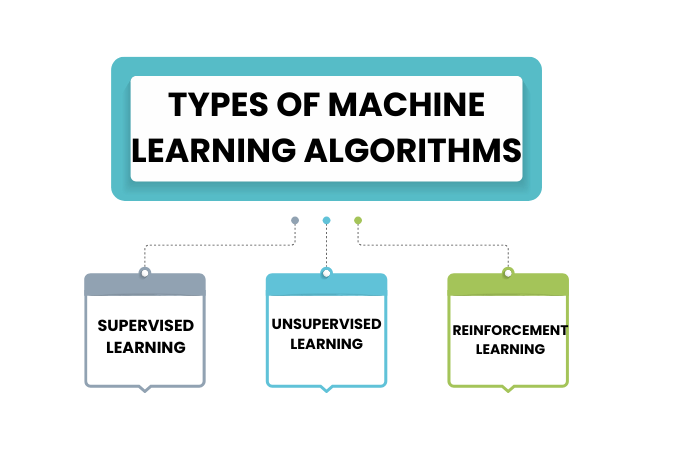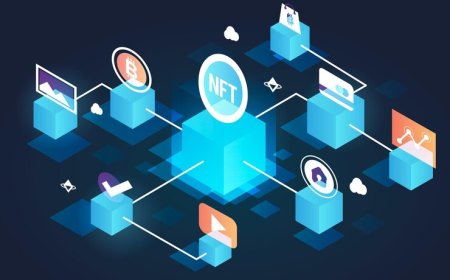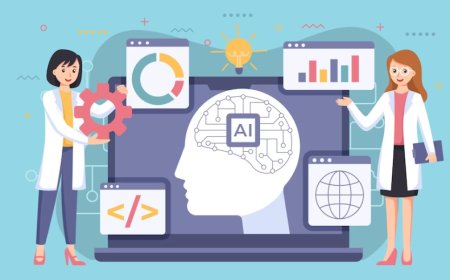In recent years, Machine learning has been reshaping industries worldwide, becoming an essential part of modern technology. It enables computers to learn from data and make decisions independently, without explicit programming. From healthcare to finance, e-commerce to transportation, machine learning is transforming businesses and daily life. In healthcare, it helps diagnose diseases and personalize treatment plans. In finance, it's vital for fraud detection and algorithmic trading. E-commerce platforms use it to improve user experiences and boost sales. With a high demand for skilled professionals, a career in machine learning offers diverse opportunities to solve complex problems and make a real impact.
Considering the vast potential and applicability of machine learning, there's a significant demand for skilled professionals in this field. A career in machine learning opens doors to a wide range of opportunities where you can apply your analytical skills and creativity to solve complex problems. Whether you're passionate about developing cutting-edge algorithms, building predictive models, or extracting insights from data, there's a role for you in the field of machine learning.
Furthermore, a career in machine learning isn't restricted to specific industries. Companies of all sizes, from big tech firms to startups, are eager to utilize machine learning for innovation and competitiveness. This means you'll have the freedom to explore different fields and work on projects that match your interests and skills.
Understanding Machine Learning
Definition and Basic Concepts
Machine learning is a branch of artificial intelligence (AI) that focuses on teaching computers to learn from data and improve over time without being explicitly programmed. The basic idea is to enable machines to identify patterns in data and make decisions or predictions based on those patterns. In essence, it's about teaching computers to learn from experience, similar to how humans learn.
Key concepts in machine learning
a. Data: Machine learning algorithms rely on data to learn patterns and make predictions. This data can be structured (organized in a database) or unstructured (like text or images).
b. Features: These are the specific attributes or characteristics of the data that the algorithm uses to make predictions. For example, in predicting house prices, features could include the number of bedrooms, location, and square footage.
c. Models: A model is a mathematical representation of the patterns in the data. Machine learning algorithms create models based on the provided data, which they then use to make predictions on new, unseen data.
Types of Machine Learning Algorithms

- Supervised Learning: In supervised learning, the algorithm learns from labeled data, where each example is paired with the correct answer. The algorithm learns to make predictions by finding patterns in the input-output pairs. Common tasks include classification (assigning categories to data) and regression (predicting continuous values).
- Unsupervised Learning: Unsupervised learning involves learning from unlabeled data, where the algorithm tries to find patterns or structures within the data on its own. Common tasks include clustering (grouping similar data points) and dimensionality reduction (reducing the number of features while retaining important information).
- Reinforcement Learning: Reinforcement learning is about learning optimal decision-making behavior by interacting with an environment. The algorithm learns from feedback in the form of rewards or penalties as it takes action, aiming to maximize long-term rewards.
Real-World Applications
These real-world applications demonstrate the versatility and practicality of machine learning across different industries, driving innovation and efficiency. Machine learning is applied across various domains, including:
-
Healthcare: Diagnosing diseases, personalized treatment plans, drug discovery.
-
Finance: Fraud detection, credit scoring, stock market prediction.
-
E-commerce: Product recommendations, customer segmentation, demand forecasting.
-
Transportation: Autonomous vehicles, traffic prediction, route optimization.
-
Marketing: Targeted advertising, customer churn prediction, sentiment analysis.
Skills Required For A Career In Machine Learning
A. Technical Skills:
-
Proficiency in Programming Languages: Machine learning professionals need to be proficient in programming languages like Python and R, as these are commonly used for developing machine learning algorithms and working with data.
-
Understanding of Data Structures and Algorithms: Knowledge of data structures and algorithms is essential for efficient data manipulation and algorithm development. This includes understanding how to store and organize data effectively and how to implement various algorithms efficiently.
-
Knowledge of Statistical Analysis and Mathematics: Machine learning involves a strong foundation in statistical analysis and mathematics, including concepts such as linear algebra, calculus, and probability. These mathematical principles are fundamental for understanding machine learning algorithms and their underlying principles.
-
Familiarity with Machine Learning Libraries and Frameworks: Machine learning professionals must be familiar with popular machine learning libraries and frameworks like Tensor Flow, PyTorch, and sci-kit-learn. These libraries provide pre-built tools and functions for implementing machine learning algorithms and working with data efficiently.
B. Soft Skills:
-
Critical Thinking and Problem-Solving Abilities: Machine learning professionals need strong critical thinking and problem-solving abilities to analyze complex data problems, identify appropriate algorithms, and develop effective solutions.
-
Strong Communication Skills: Effective communication skills are essential for conveying technical concepts to non-technical stakeholders, collaborating with team members, and presenting findings and insights clearly and concisely.
-
Ability to Work in a Collaborative Environment: Machine learning projects often involve collaboration with multidisciplinary teams comprising data scientists, engineers, and domain experts. Therefore, the ability to work collaboratively and contribute to team goals is crucial.
-
Adaptability and Willingness to Learn: Machine learning is a rapidly evolving field, with new techniques and technologies emerging frequently. Machine learning professionals need to be adaptable and willing to learn new techniques and technologies to stay updated and relevant in the field.
Educational Paths And Resources
By taking advantage of academic programs, online courses, certifications, and self-study resources, those aspiring to enter the field of machine learning can gain the necessary knowledge and skills. It's beneficial to blend formal education with practical experience by working on projects and collaborating with others. This approach helps individuals build a comprehensive skill set and get ready for fulfilling career prospects in machine learning.
A. Academic Routes
-
Undergraduate Degrees: Pursuing an undergraduate degree in computer science, mathematics, or related fields provides a strong foundation for a career in machine learning. These programs cover essential topics such as programming, algorithms, and mathematical principles, which are crucial for understanding machine learning concepts.
-
Graduate Programs: Graduate programs specializing in machine learning or data science offer advanced coursework and research opportunities focused specifically on machine learning techniques and applications. These programs often delve deeper into topics such as advanced algorithms, statistical modeling, and practical machine-learning projects.
B. Online Courses and Certifications
-
Platforms Offering Machine Learning Courses: Online learning platforms like Coursera, Datamites, Udacity, and edX offer a variety of machine learning courses taught by industry experts and academics. These courses cover a range of topics, from introductory concepts to advanced algorithms and applications, allowing learners to gain practical skills at their own pace.
-
Specialized Certifications: Obtaining specialized certifications in machine learning can enhance skills and credentials, making candidates more competitive in the job market. Certifications from reputable organizations or platforms validate proficiency in specific areas of machine learning, such as deep learning or natural language processing.
C. Self-Study Resources:
-
Tutorials and Online Resources: There are abundant tutorials and online resources available for self-paced learning in machine learning. Websites like Kaggle, Towards Data Science, and Medium offer tutorials, articles, and case studies covering various machine learning topics, providing learners with practical insights and examples.
-
Open-Source Projects and Datasets: Engaging in open-source projects and working with real-world datasets can provide valuable hands-on experience in machine learning. Platforms like GitHub host numerous open-source machine learning projects where learners can contribute, collaborate, and gain practical experience by working on real-world problems.
By leveraging academic programs, online courses, certifications, and self-study resources, aspiring machine learning professionals can acquire the knowledge and skills needed to succeed in this dynamic field. Combining formal education with practical experience through projects and collaborations allows individuals to develop a well-rounded skill set and prepare for rewarding career opportunities in machine learning.
Building A Strong Portfolio
By engaging in personal projects, contributing to open-source initiatives, pursuing internships or freelance work, and seeking mentorship, you can build a strong portfolio that demonstrates your capabilities and commitment to advancing in the field of machine learning. This portfolio not only showcases your skills to potential employers but also provides valuable learning experiences that contribute to your professional growth.
A. Personal Projects:
-
Developing Machine Learning Models: Creating and implementing machine learning models on real-world datasets is a valuable way to showcase your skills. Choose projects that align with your interests or address real-world problems. This could involve anything from predicting house prices based on housing data to classifying images in healthcare.
-
Contributing to Open-Source Projects or Competitions: Participating in open-source projects or competitions, such as those on platforms like Kaggle, offers opportunities to collaborate with others and tackle challenging problems. Contributing code, improving existing models, or submitting your solutions can demonstrate your expertise and initiative.
B. Internships and Freelance Opportunities:
-
Gaining hands-on experience: Internships and freelance projects provide hands-on experience in applying machine learning techniques to real-world scenarios. Look for opportunities to work with companies or organizations where you can apply your skills and learn from experienced professionals.
-
Networking for Mentorship: Networking with professionals in the machine learning field can provide valuable mentorship and guidance. Attend industry events, join online communities, and reach out to professionals for advice and support. Building relationships with mentors can help you navigate your career path and gain insights into industry trends.
The Job Market
A. Job roles in machine learning:
-
Machine Learning Engineer: Responsible for designing, implementing, and deploying machine learning systems and algorithms. They collaborate with data scientists and software engineers to develop scalable and efficient machine-learning solutions.
-
Data Scientist: Analyzes complex datasets to extract valuable insights and inform decision-making processes. Data scientists use statistical techniques and machine-learning algorithms to solve business problems and generate actionable recommendations.
-
AI Research Scientist: Researches to advance artificial intelligence and machine learning technologies. They explore new algorithms, develop innovative models, and publish research findings in academic journals or present them at conferences.
-
Deep Learning Engineer: Specializes in designing and implementing deep learning algorithms and neural networks. They work on projects involving computer vision, natural language processing, and speech recognition, among others.
-
Applied Machine Learning Engineer: Focuses on applying machine learning techniques to solve specific business problems or industry challenges. They work closely with domain experts to identify opportunities for applying machine learning and develop tailored solutions.
-
Data Engineer: Builds and maintains data pipelines and infrastructure to support machine learning workflows. Data engineers ensure data quality, availability, and scalability for machine learning projects by designing robust data architectures.
-
Business Intelligence Analyst: Analyzes business data to provide insights and support strategic decision-making. Business intelligence analysts use machine learning tools and techniques to identify trends, patterns, and opportunities for business growth.
-
AI Ethics Specialist: Addresses ethical considerations and societal impacts of AI and machine learning technologies. AI ethics specialists develop policies, guidelines, and frameworks to ensure the responsible and ethical use of AI in various applications and industries.
-
Machine Learning Product Manager: Oversees the development and implementation of machine learning products and solutions. They define product requirements, prioritize features, and collaborate with cross-functional teams to deliver successful machine learning products to market.
-
Research Engineer: Conducts applied research to develop new machine-learning algorithms or improve existing techniques. Research engineers work at the intersection of academia and industry, translating research findings into practical applications and prototypes.
B. Industry Sectors Hiring Machine Learning Professionals:
These sectors offer various roles, such as data analyst, research scientist, and software engineer, for machine learning professionals.
-
Technology Companies: Tech firms like Google and startups use machine learning for product innovation and automation.
-
Healthcare: Hospitals and research institutions employ machine learning for diagnostics and treatment optimization.
-
Finance: Banks and investment firms utilize machine learning for fraud detection and risk assessment.
-
E-commerce: Online retailers employ machine learning for personalized recommendations and sales forecasting.
-
Manufacturing: Factories apply machine learning for predictive maintenance and quality control.
-
Government: Government agencies use machine learning for cybersecurity and public service optimization.
-
Marketing and Advertising: Marketing agencies use machine learning for targeted advertising and customer segmentation.
-
Education: Schools and e-learning platforms use machine learning for personalized learning experiences.
-
Agriculture: Farms use machine learning for crop monitoring and yield optimization.
-
Energy and Utilities: Energy companies apply machine learning for energy forecasting and grid optimization.
C. Job Search Strategies:
Utilizing Online Job Boards and Networking Platforms:
Search for machine-learning job opportunities on online job boards such as Indeed, Glassdoor, and LinkedIn. Additionally, join professional networking platforms and groups to connect with industry professionals and discover job openings through networking.
Building a Strong LinkedIn Profile and Professional Network:
Create a compelling LinkedIn profile highlighting your machine-learning skills, experience, and accomplishments. Connect with professionals in the field, participate in relevant groups and discussions, and seek out informational interviews to expand your network.
Tailoring Resumes and Cover Letters:
Customize your resume and cover letter for each machine learning job application, emphasizing your relevant skills, experiences, and achievements. Highlight specific projects, technical expertise, and contributions that demonstrate your qualifications for the role.
Embarking on a career in machine learning offers vast opportunities for growth and impact. By learning, exploring, and staying open to new experiences, you can carve out a rewarding path in this evolving domain.
The future of machine learning is bright, with the potential to transform industries and improve lives. As you journey into this field, remember to approach it with curiosity, responsibility, and a commitment to ethical practices. Your contributions can shape a positive future powered by data and innovation.
Machine learning is not just a field of study; it's a journey toward unlocking the mysteries of data and harnessing its power for the betterment of society. So, whether you're a student exploring career options or a professional seeking a new challenge, consider diving into the world of machine learning it's a journey worth embarking on.













































